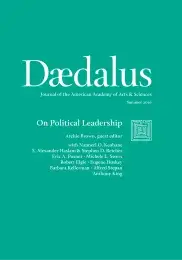Summer 2016
Presidential Leadership & the Separation of Powers
Abstract
The presidents who routinely are judged the greatest leaders are also the most heavily criticized by legal scholars. The reason is that the greatest presidents succeeded by overcoming the barriers erected by Madison’s system of separation of powers, but the legal mind sees such actions as breaches of constitutional norms that presidents are supposed to uphold. With the erosion of Madisonian checks and balances, what stops presidents from abusing their powers? The answer lies in the complex nature of presidential leadership. The president is simultaneously leader of the country, a party, and the executive branch. The conflicts between these leadership roles put heavy constraints on his power.
